Somebody has to declare a national emergency on education: Dana Perino
'The Five' co-hosts discuss the role education and parental rights will play in the 2024 presidential election.
Many students who lacked hands-on, in-person teachings due to the coronavirus pandemic and subsequent lockdowns and school closures are now struggling with basic math at the college level, according to some professors.
"Years of academy training wasted," Buzz Lightyear once famously said, but that fictitious line is now the reality for students at George Mason University, Temple University and other colleges across the country who once excelled at math and have been forced to relearn the basics as pandemic schooling failed to reinforce their learning.
Other schools are grappling with the same problem as academic setbacks from the pandemic have followed students to campus. At many universities, engineering and biology majors struggle to grasp basic functions such as fractions and exponents.
Some students are even being placed into pre-college math, starting a semester or more behind their programs’ requirements. Others are taking proactive action to avoid potential setbacks.
MSNBC HOST DEFENDS SCHOOL LOCKDOWNS FOR COVID, ATTACKS 'DANGEROUS MYTHS' OF LEARNING LOSS
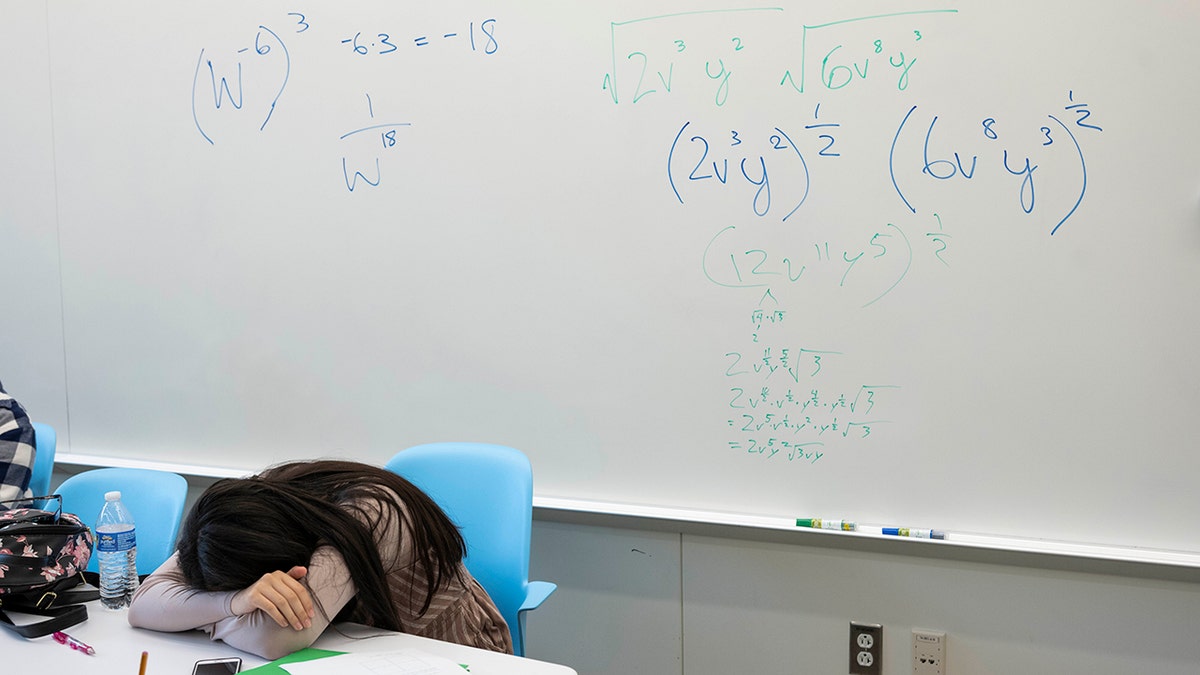
A student takes a break next to a whiteboard during a summer math boot camp on Thursday, Aug. 1, 2023 at George Mason University in Fairfax. Virginia. The pandemic disrupted all learning but caused an outsize impact in math. (AP Photo/Kevin Wolf)
George Mason University said an alarming number of students were arriving with gaps in their math skills, and fewer students are getting into calculus — the first college-level course for some majors — and more are failing. Students who fall behind often disengage, disappearing from class.
"This is a huge issue," Maria Emelianenko, chair of George Mason’s math department, told The Associated Press. "We’re talking about college-level pre-calculus and calculus classes, and students cannot even add one-half and one-third."
The issue became so prevalent that the northern Virginia school is hosting a week-long Math Boot Camp to help catch students up on math lessons that did not stick during pandemic schooling.
Diego Fonseca, a 19-year-old student at George Mason, is among 100 students who joined the math camp because he struggled to understand algebra, a subject he only studied during remote learning.
"I didn’t have a hands-on, in-person class, and the information wasn’t really there," Fonseca said. "I really struggled when it came to higher-level algebra because I just didn’t know anything."
Before his school was forced to initiate remote learning, Fonseca aced honors physics and computer science.
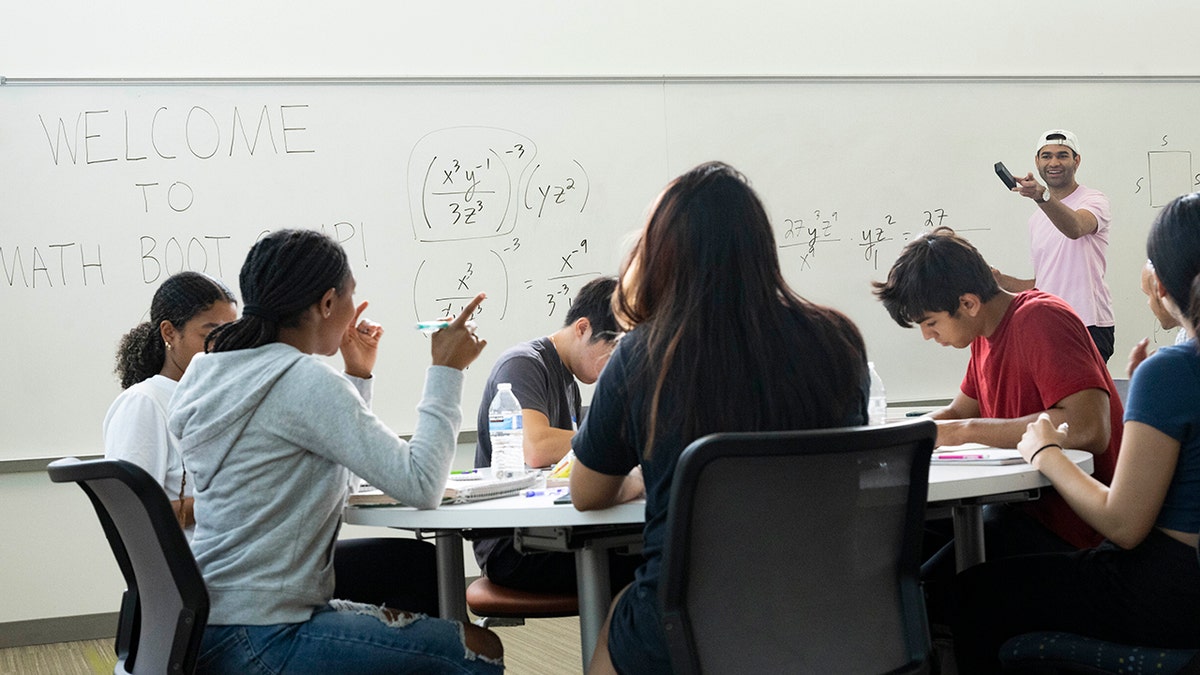
George Mason Term grad student Aman D'Souza, right, calls on Alicia Davis, second from left, during summer math boot camp on Thursday, Aug. 1, 2023 at George Mason University in Fairfax. Virginia. (AP Photo/Kevin Wolf)
Colleges are largely blaming the disruptions of the pandemic, which have resulted in a measurable decline in reading and math scores on the national test known as NAEP.
Testing for both subjects plummeted, but math fell further, by margins not seen in decades of testing.
BIDEN SLAMMED FOR TAKING CREDIT FOR REOPENING SCHOOLS: 'WILL TAKE YEARS FOR STUDENTS TO DIG OUT'
Jessica Babcock, a Temple University math professor, said the magnitude of the problem hit home for her last year while she was grading quizzes in her intermediate algebra class, the lowest option for STEM majors.
The quiz was described as an easy grade at the start of the fall semester. It included questions like asking students to subtract eight from negative six [Written out: -6 - 8 = ?].
"I graded a whole bunch of papers in a row. No two papers had the same answer, and none of them were correct," she said. "It was a striking moment of, like, wow — this is significant and deep."
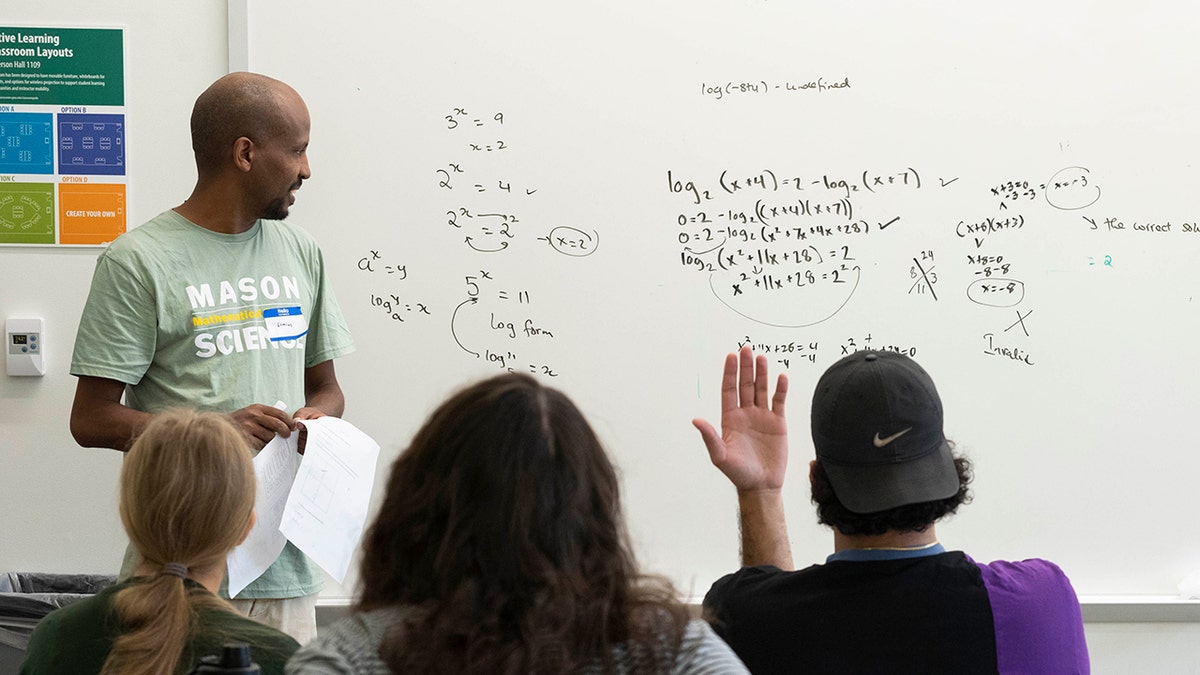
George Mason Term Instructor Ermias Kassaye, standing left, leads a summer math boot camp on Thursday, Aug. 1, 2023 at George Mason University in Fairfax. Virginia. (AP Photo/Kevin Wolf)
Before the pandemic, about 800 students per semester were placed into the preliminary class, the equivalent of ninth-grade math. By 2021, it swelled to nearly 1,400.
Brian Rider, Temple's math chair, speaking of new students, added, "It’s not just that they’re unprepared, they’re almost damaged. I hate to use that term, but they’re so behind."
Researchers say math learning suffered for various reasons. An intensely hands-on subject, math was hard to translate to virtual classrooms. When students fell behind in areas like algebra, gaps went unnoticed for a year or more as students moved onto subjects such as geometry or trigonometry.
Also, during in-home learning environments, parents are generally more comfortable helping with reading than math.
There is no simple solution either, colleges say, as many are trying to identify gaps sooner, adopting placement tests that delve deeper into math skills and some are adding summer camps like George Mason’s, which have proved effective in helping students.
Other schools offer "corequisite" classes that allow students to catch up on the basics while also taking higher courses.
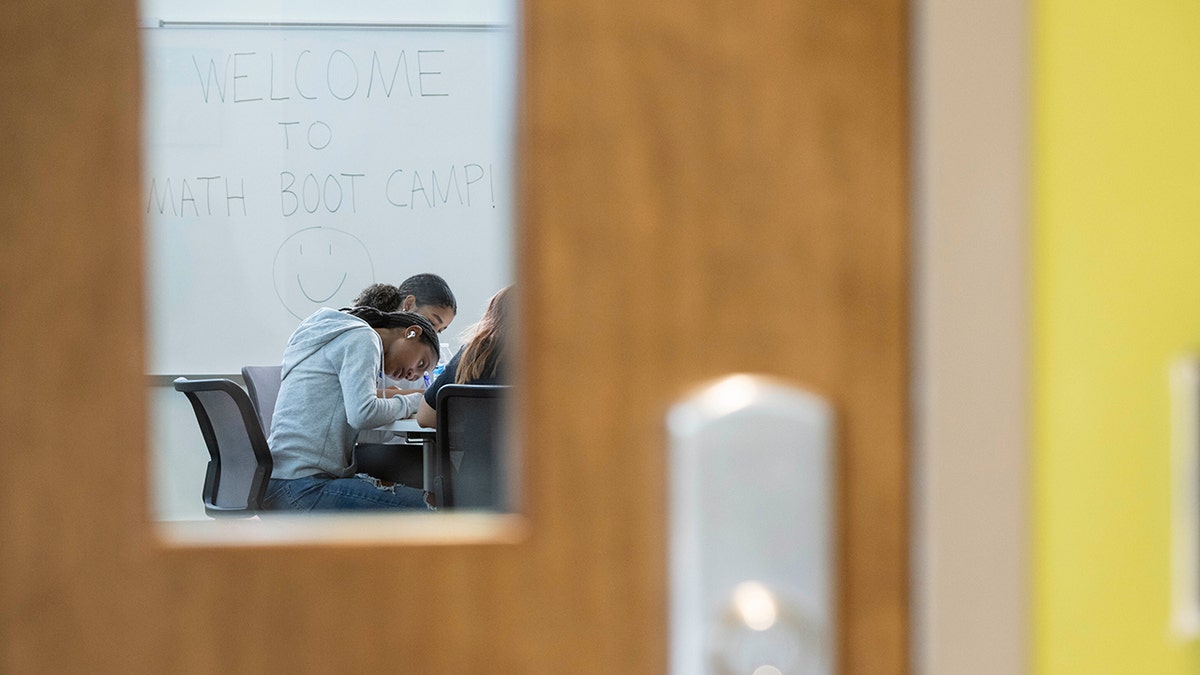
Students take part in a summer math boot camp on Thursday, Aug. 1, 2023 at George Mason University in Fairfax. Virginia. (AP Photo/Kevin Wolf)
At Temple, Babcock is redesigning the algebra course. "We really want students to feel like they’re part of their learning," the math professor said. "We can’t change their preparation coming in, but we can work to meet their needs in the best way possible."
Penn State, formerly known as Pennsylvania State University, is tackling the problem through expanding peer tutoring.
Tracy Langkilde, dean of Penn State's College of Science, said professors report students who participate in the tutoring have scored 20% higher on exams.
"COVID changed the way we deliver not only courses but also academic support services," said Jeff Adams, interim vice provost and dean for Undergraduate Education. "At Penn State Learning, for example, thousands of students a year attend remote synchronous exam reviews and access recorded review and group study sessions, and several hundred students submit writing drafts for asynchronous feedback from peer tutors. These options were not widely available to resident students before 2020."
Adams also said students who utilize the programs are scoring higher, on average, than those who do not.
He added: "Students have also eagerly returned to in-person tutoring and study groups, especially for subjects like math. A recent data analysis of our guided study group sessions, which are available for select STEM courses, shows that first-year students with lower academic preparation who use one or more of these services have ABC course grade rates near or above students with higher preparation levels who have not used the services. Penn State Learning has more than 50,000 contacts with students annually, and 13,422 unique students accessed services in 2022."
At other schools, the problem was isolated to a single graduation class like Iowa State University, known for its engineering program, when students who entered in 2020 struggled — likely being placed in lower-level math classes and seeing their grades fall — but numbers improved for the following year's class, said Eric Weber, math department chair.
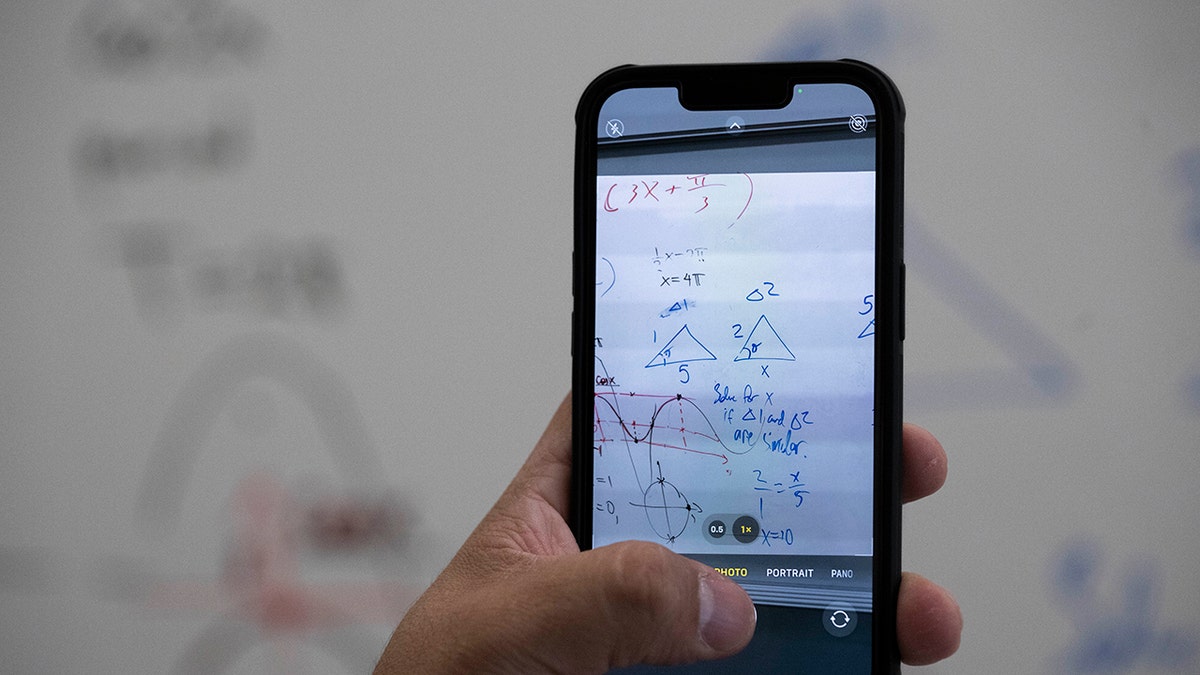
A student uses his phone to copy the whiteboard at the end of a summer math boot camp session on Thursday, Aug. 1, 2023 at George Mason University in Fairfax. Virginia. (AP Photo/Kevin Wolf)
CLICK HERE TO GET THE FOX NEWS APP
Fox News Digital contacted Temple University, Penn State and George Mason for additional comment, but a response was not immediately received.
Several schools and programs are continuing to study the impact of COVID lockdowns on students. Long-term effects may not be fully identified for years.
The Associated Press contributed to this report.










































